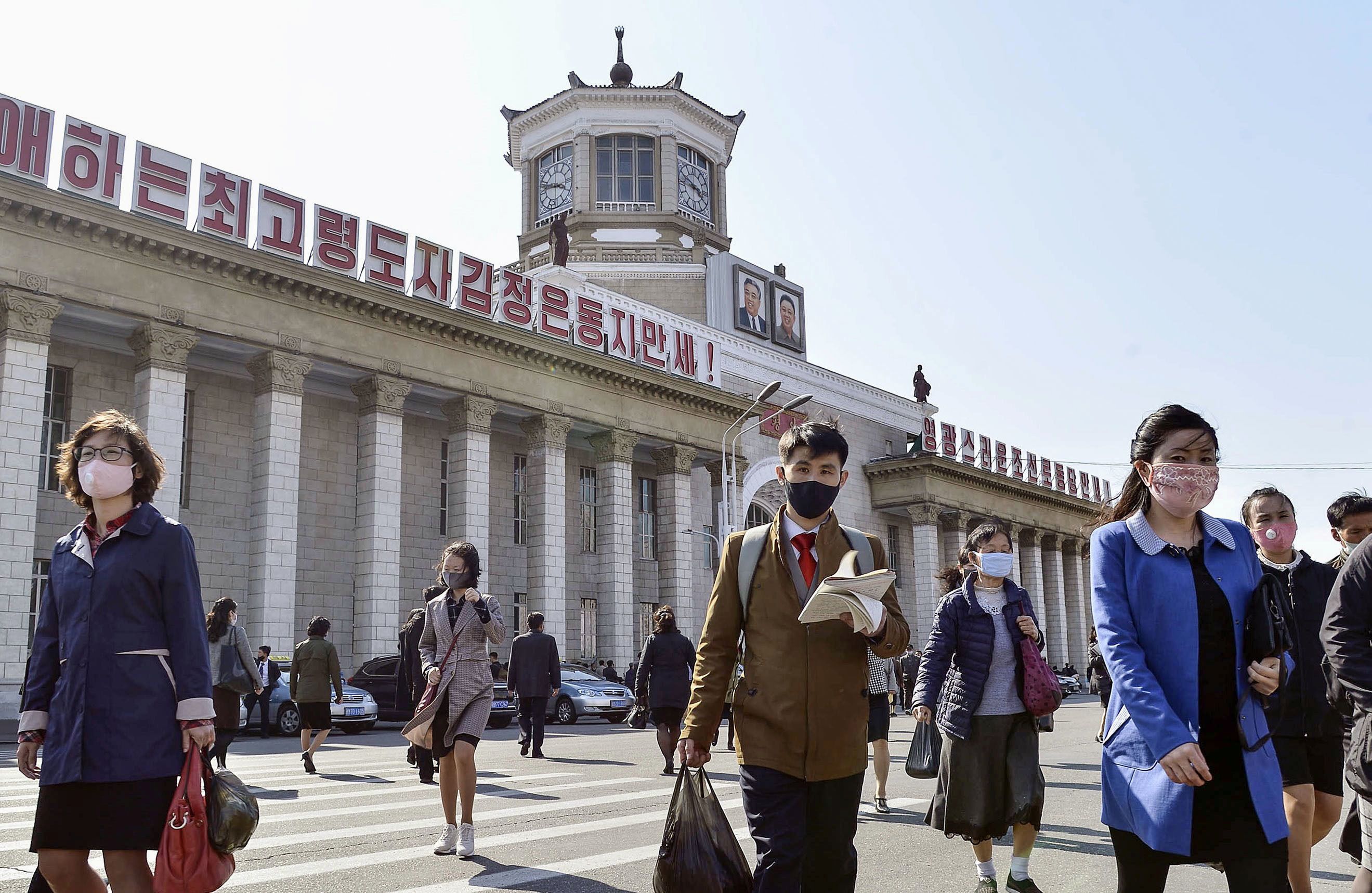
The Failure of the EU’s Policy of Critical Engagement
Since 1995, the EU has pursued a policy of critical engagement towards North Korea. Its goals are to permanently reduce tensions on the Korean Peninsula and in the region, to uphold the international non-proliferation regime and to improve the human rights situation in North Korea. The basic assumption of this policy is the use of instruments of engagement and pressure.
In 1998, the EU initiated a political dialogue with North Korea, leading to the establishment of diplomatic relations between North Korea, the EU and most Western European countries at the beginning of the 21st century. Since the 2002 nuclear crisis, the EU has reduced dialogue and support for North Korea’s economy and raised the problem of human rights violations more regularly. Since 2013, due to the development of North Korea’s nuclear and missile programmes, pressure in the form of sanctions, limitation of contacts and reduction of humanitarian aid have prevailed in the EU’s approach. In 2015, the last meeting of the EU-North Korea political dialogue was held. The EU has strengthened its autonomous sanctions, supplementing UN Security Council resolutions, and its policy has become reactive and increasingly dependent on the state of North Korea’s relations with the United States.
Reducing policy to putting pressure on North Korea did not bring the EU closer to achieving its goals, but only limited the Union and its Member States’ capacities to influence, weakening their already negligible impact on security matters on the Korean Peninsula and in East Asia. Therefore, changes to the EU’s North Korea policy should be considered. The changes would incorporate elements of engagement into the current approach, such as resuming political dialogue with North Korea and increasing humanitarian aid. Due to the continuing development of North Korea’s nuclear and missile programmes and the risk of proliferation, it is necessary to further implement sanctions in accordance with the UNSC resolutions. Maintaining the tools of pressure should not, however, prevent the EU from trying to engage in areas where it has the potential to act and which have been underestimated in recent years.
Potential Areas of the EU’s Engagement
It is possible to strengthen European engagement at the political and diplomatic levels by using the EU’s diplomatic presence in North Korea and the North Korean presence in European countries. The EU and Member States have the potential to support the diplomatic efforts of the U.S. and South Korea towards North Korea. For example, Sweden, by providing good offices, twice held working meetings of U.S. and North Korean diplomats in Stockholm in 2019. In this field, the potential of Central and Eastern Europe’s countries, which maintain four out of six EU embassies in Pyongyang (Poland, the Czech Republic, Romania and Bulgaria), is unexploited. Re-establishing a systematic EU-North Korea dialogue would facilitate regular contacts. Periodic meetings would enable knowledge of North Korea’s position, which would bring a chance to develop terms of cooperation based on mutual expectations. To facilitate diplomatic activity, existing expert initiatives, organised by institutions from, among other countries, Sweden, Finland and Spain, with participation of analysts and diplomats from European countries, North and South Korea and the United States, could be used.
Another area of EU involvement could be the economy. Increasing humanitarian aid to North Korea would be of tangible importance. EU aid to North Korea has amounted to just over €135 million since 1995, and has decreased significantly in recent years (less than €4 million in 2019). Due to the likely deterioration of the economic situation in North Korea due to the COVID-19 pandemic, it is worth improving the mechanism of granting temporary exceptions to sanctions to allow the stable operation of aid organisations in North Korea. Support should be provided, however, on the condition that the North Korean authorities allow humanitarian organisations to act freely and monitor the aid provided. The positive effects of cooperation in the humanitarian field could encourage the EU to take further steps, such as easing its own sanctions and supporting the relaxation of UN sanctions in order to allow the resumption of inter-Korean economic cooperation. However, the EU’s actions would also depend on the state of inter-Korean relations and the progress of the denuclearisation negotiations.
Opportunities and Benefits of the EU’s New Approach
Several factors are conducive to changes in the EU’s North Korea policy. First, the new EU authorities have declared a more ambitious global policy. Increased engagement on the Korean Peninsula would strengthen the EU’s credibility as an organisation trying to solve global problems. It would also show that the EU is seeking to strengthen its own security by taking steps to stabilise the peninsula.
Second, the current stalemate in both the inter-Korean dialogue and the North Korea-U.S. negotiations creates opportunities for engagement and support for diplomatic activities on the peninsula. European channels of communication with North Korea would enable regular meetings between U.S. and South Korean negotiators and experts with their North Korean counterparts. Providing good offices, also in the context of the U.S. elections and a potential change of administration there, would constitute a European contribution to the peaceful resolution of disputes and could strengthen the allied and partner cooperation of European countries with the U.S. and South Korea.
Third, president Moon Jae-in of South Korea is counting on the EU’s support, which he emphasised during EU-South Korea summit in June. So far, Moon has failed to convince European partners to ease pressure on North Korea, including during his visit to Europe in October 2018. A more active stance by the Union towards North Korea would strengthen the EU’s strategic partnership with the Republic of Korea.
Fourth, the EU’s commitment in the socio-economic and humanitarian dimension could have a real impact on the situation of the most deprived people in North Korea. It would also respond to calls from international organisations, which emphasise that sanctions are among the factors worsening the food situation in North Korea and make it difficult to tackle the COVID-19 pandemic.
Limitations
North Korea’s approach may be the most serious barrier to the policy of engagement. Its authorities repeatedly mis-used the economic and humanitarian support of other countries and organisations. North Korea has officially opened to dialogue with the EU and its Member States, but at the same time it presents uncompromising expectations towards them, which boils down to the total lifting of sanctions. Dialogue is also hampered by North Korea’s distrust of European countries, which it often treats as players implementing U.S. policy towards the Korean Peninsula.
Additionally, there are obstacles on the European side that may result in a lack of political will at the level of both the EU and the Member States to introduce changes in the policy towards North Korea. First, transatlantic relations, relations with China and Russia, and the situation in the immediate neighbourhood are of greater importance to the EU. Despite the importance of non-proliferation for international security, the nuclear problem on the Korean Peninsula is not a priority for European countries. Second, it is difficult to find a consensus in the EU on the policy towards North Korea. For example, the biggest opponent to introducing changes has long been France, which has conditioned political dialogue with North Korea on its steps towards denuclearisation and improving respect for human rights.
Conclusions
Despite the existing obstacles and risks, the EU may consider returning to the policy of engagement towards North Korea, treating the Korean Peninsula as one of the key areas for international security. European activity would show a good understanding of the problems on the peninsula, which are not limited to talks on denuclearisation and cannot be solved solely by sanctions. Maintaining sanctions in accordance with the UNSC resolutions is necessary, but should not excuse passivity and lack of engagement. By sticking to the objectives and assumptions of the policy of critical engagement, the EU has the opportunity to open up to difficult talks with North Korea.




